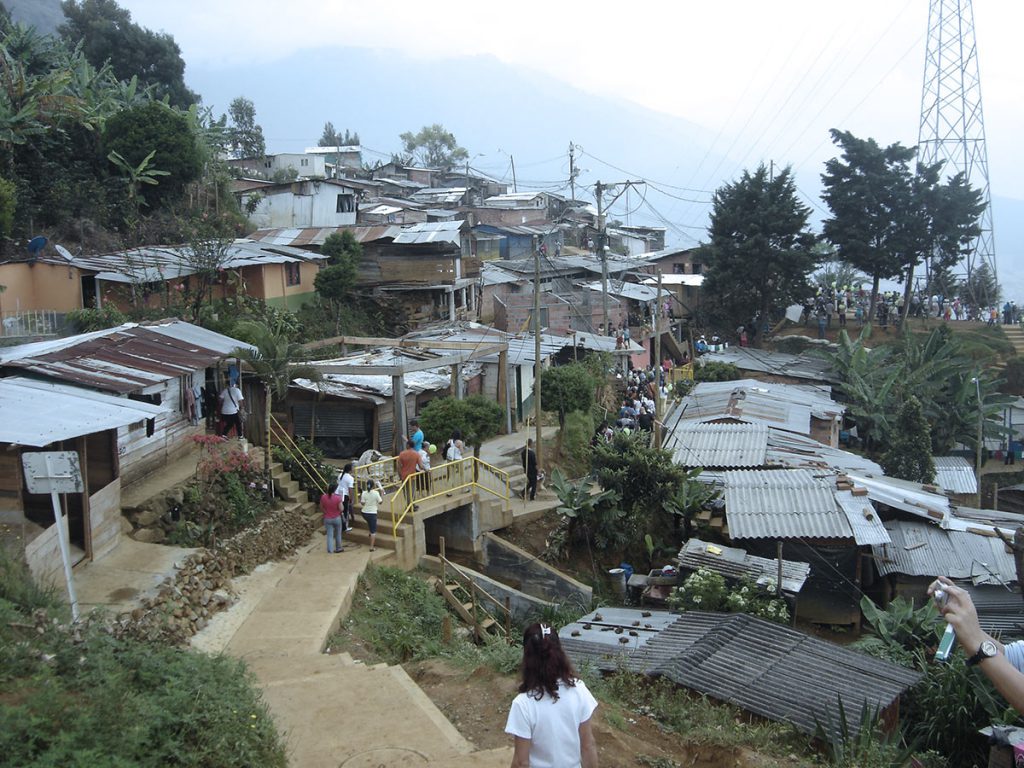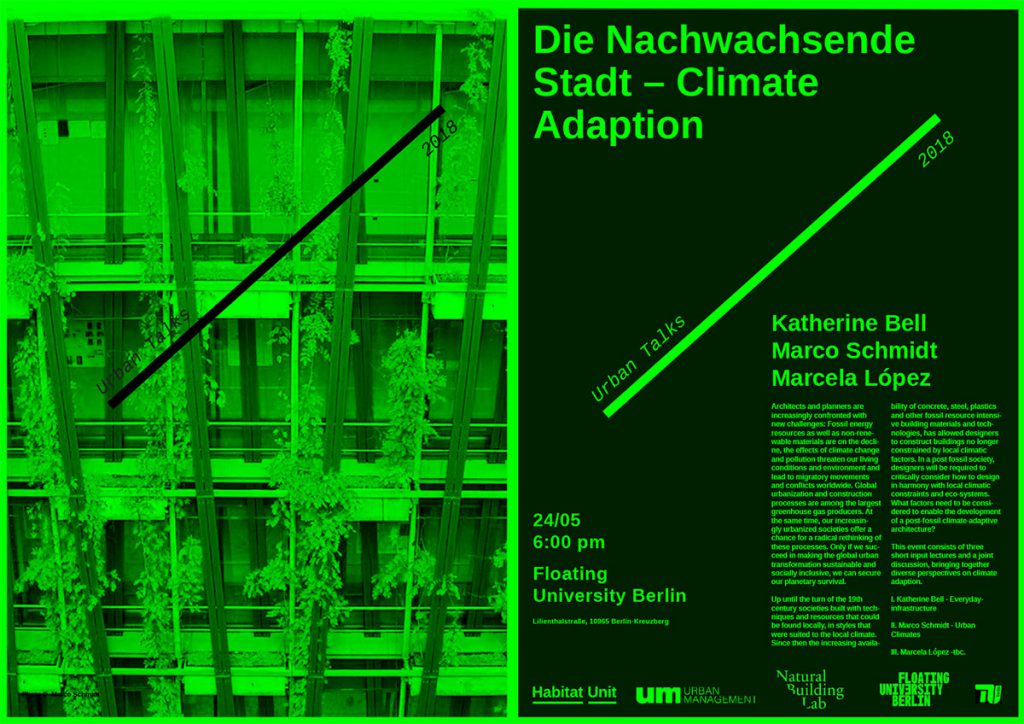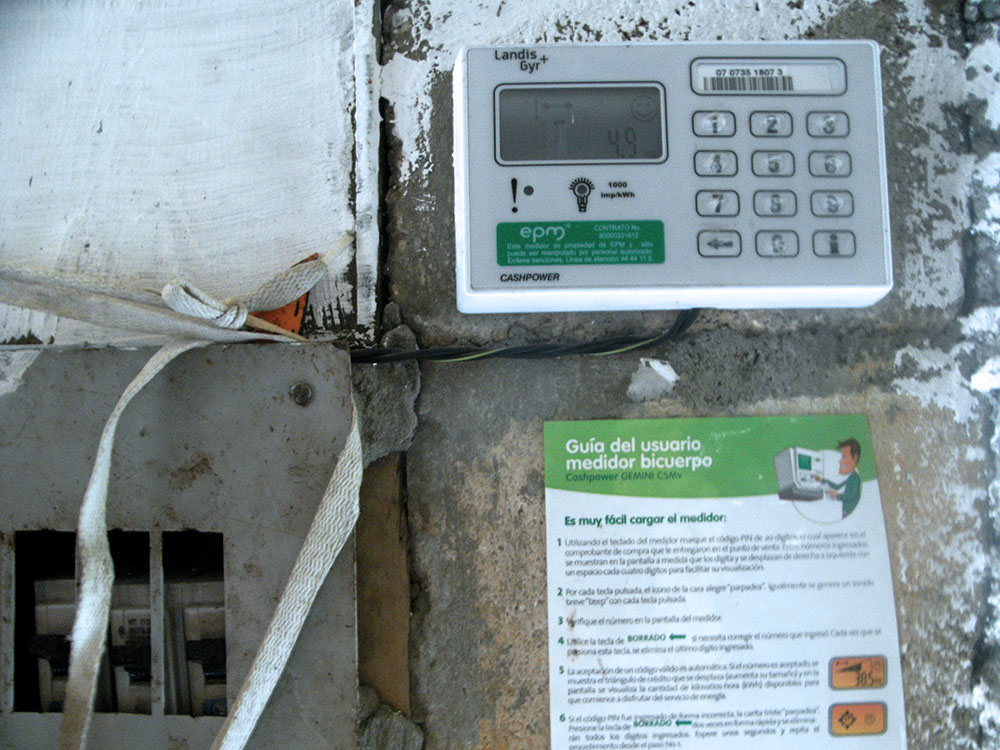
Corporatization and Water Inequalities
Talk
Location: Institut für Ethnologie, Ludwig Maximilians Universität, Munich
Date: 21 June, 2018

Under the framework of “Die Amerikas: Forschungskolloquium zu den Amerikas aus kulturwissenschaftlicher Sicht”, CUW is invited to discuss how access to urban water has become a crucial terrain over which the expansion of market-based logic over fundamental human needs are both consolidated and contested. By tracing how urban water becomes commodified, controlled and accessed in Medellín, Colombia’s second largest city, this talk asks why water inequalities are dramatically increasing in a city that is located in an area of bountiful hydrological conditions and owns one of the most successful public water utility companies in the Global South: the Public Enterprises of Medellín (EPM).
By drawing attention to the strategies of EPM to commodify the flows of water together with the everyday practices of low-income households to decommodify these flows, this talk discuss why inequalities associated with access to and control over water are so important to contemporary urban politics and urban environments, and bear on important questions of how citizenship and basic rights are conceived.
Visit the Institut für Ethnologie website for more information.
Extending Infrastructures, Formalizing the Informal: Access to Public Water in Cities of the South
Summer School
Location: Visaginas, Lithuania
Date: 24 August, 2018

CUW’s founder Marcela López is invited to take part of the Summer School “Mapping Visaginas: Re tooling Knowledge Infrastructures in a ‘Post-Nuclear’ Town” organized by the Laboratory of Critical Urbanism, European Humanities University, Vilnius. The lecture will discuss how inhabitants of informal settlements participate in the extension of the centralized water network. Drawing on case study conducted in Medellín, Colombia, this presentation unravels how households exceeding the urban perimeter actively participate in securing access to and control over water resources, while the city’s public utility company struggle to reduce the amount of water leakages in the distribution networks and to control accelerated urban growth. The presentation shows how water material properties allow us to better understand how certain participation practices to secure access to water are mobilized, constructed and consolidated and how district notions of “public” are being made.
The Summer School program is available here
In cooperation with the Laboratory of Critical Urbanism, European Humanities University, Vilnius
Die Nachwachsende Stadt – Climate Adaption
Talk
Location: Floating University Berlin
Date: 24 May, 2018

Architects and planners are increasingly confronted with new challenges: Fossil energy resources as well as non-renewable materials are on the decline, the effects of climate change and pollution threaten our living conditions and environment and lead to migratory movements and conflicts worldwide. Global urbanization and construction processes are among the largest greenhouse gas producers. At the same time, our increasingly urbanized societies offer a chance for a radical rethinking of these processes. Only if we succeed in making the global urban transformation sustainable and socially inclusive, we can secure our planetary survival.
This event consists of three short input lectures and a joint discussion, bringing together diverse perspectives on climate adaption and water provision. CUW’s founder Marcela López (geographer) will be participating in the event, alongside Katherine Bell (artist), and Marco Schmidt (engineer).
In cooperation with the Habitat Unit, Technische Universität Berlin
Assembling the Medellín Model of Prepaid Water Meters
Talk
Location: New York University (NYU), Abu Dhabi
Date: 18-19 February, 2018

CUW is invited to be part of the workshop “Transformations in Environment and Society” to discuss how utility companies are actively involved in designing, adjusting and politicizing prepaid water systems, and how they prepare consumers to interact with this micro-technology. The talk concludes by reflecting on the importance of uncovering the socio-political and historical-geographical context in which prepaid water systems are embedded in order to understand why these micro-technologies in certain places completely succeed while in others are fiercely disputed.
In cooperation with the Rachel Carson Center for Environment and Society and Arts and Humanities – NYU Abu Dhabi




